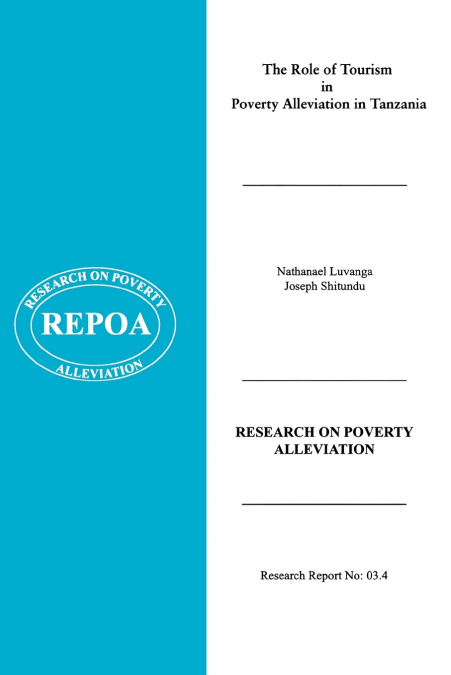
 Librería Perelló (Valencia)
Librería Perelló (Valencia)
 Librería Aciertas (Toledo)
Librería Aciertas (Toledo)
 El AlmaZen del Alquimista (Sevilla)
El AlmaZen del Alquimista (Sevilla)
 Librería Elías (Asturias)
Librería Elías (Asturias)
 Librería Kolima (Madrid)
Librería Kolima (Madrid)
 Donde los libros
Donde los libros
 Librería Proteo (Málaga)
Librería Proteo (Málaga)
Global trends have led to a marked decline in the role of the state in national development. Part of the Research on Poverty Alleviation series, aiming to deepen the understanding of the causes, extent, nature, rate of change and means of combating poverty in Tanzania. This paper argues that a higher economic growth rate that is pro-poor is a prerequisite for poverty alleviation. Rapid growth of the tourism sector is postulated as an important instrument of poverty alleviation, the creation of jobs, the sales of goods and services, support of the cultural industries and source of foreign exchange. The study however demonstrates the flip-side of tourism: that it is a complex industry often driven by the private sector to benefit international companies rather than local economies and causing environmental degradation. It concludes that more research is needed into the impact of tourism on the livelihoods of the locals and to ensure that as Tanzania becomes a major tourist destination, the industry is harnessed to alleviate poverty and improve livelihoods.